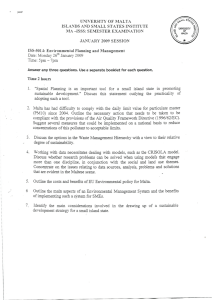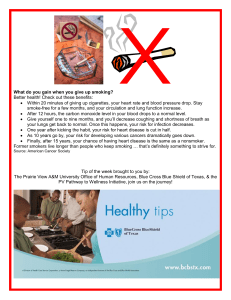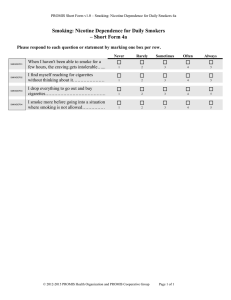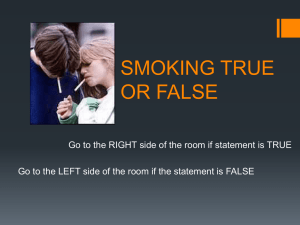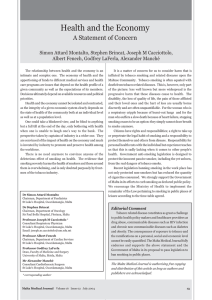Editorial
advertisement
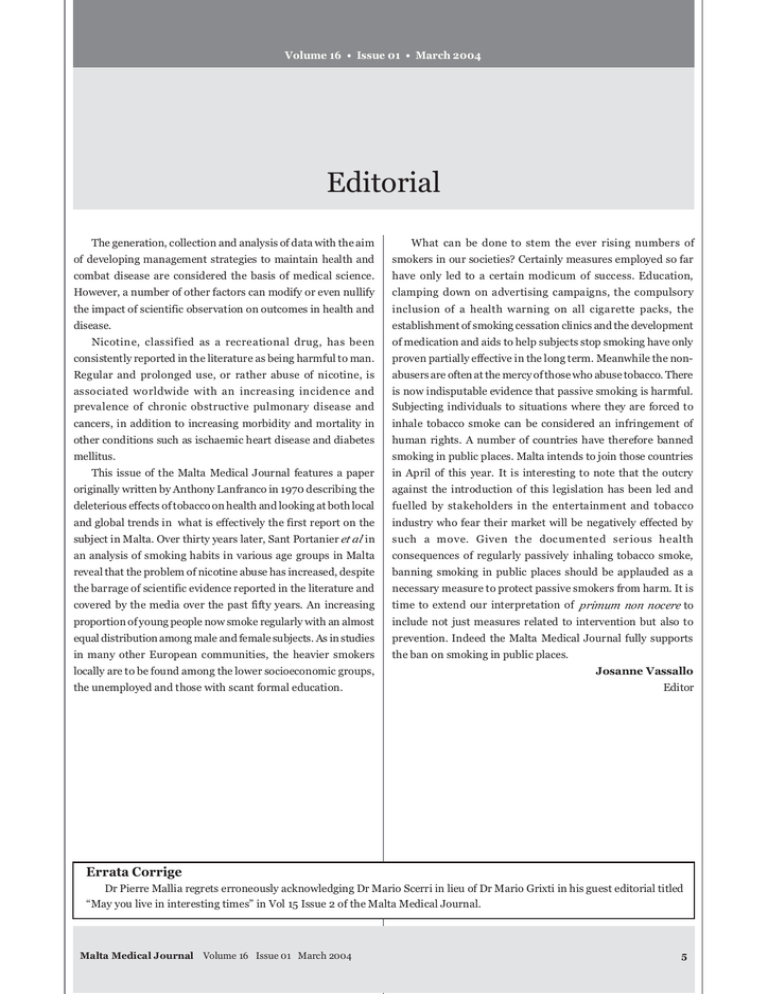
Volume 16 • Issue 01 • March 2004 Editorial The generation, collection and analysis of data with the aim What can be done to stem the ever rising numbers of of developing management strategies to maintain health and smokers in our societies? Certainly measures employed so far combat disease are considered the basis of medical science. have only led to a certain modicum of success. Education, However, a number of other factors can modify or even nullify clamping down on advertising campaigns, the compulsory the impact of scientific observation on outcomes in health and inclusion of a health warning on all cigarette packs, the disease. establishment of smoking cessation clinics and the development Nicotine, classified as a recreational drug, has been of medication and aids to help subjects stop smoking have only consistently reported in the literature as being harmful to man. proven partially effective in the long term. Meanwhile the non- Regular and prolonged use, or rather abuse of nicotine, is abusers are often at the mercy of those who abuse tobacco. There associated worldwide with an increasing incidence and prevalence of chronic obstructive pulmonary disease and is now indisputable evidence that passive smoking is harmful. Subjecting individuals to situations where they are forced to cancers, in addition to increasing morbidity and mortality in inhale tobacco smoke can be considered an infringement of other conditions such as ischaemic heart disease and diabetes human rights. A number of countries have therefore banned mellitus. smoking in public places. Malta intends to join those countries This issue of the Malta Medical Journal features a paper in April of this year. It is interesting to note that the outcry originally written by Anthony Lanfranco in 1970 describing the against the introduction of this legislation has been led and deleterious effects of tobacco on health and looking at both local fuelled by stakeholders in the entertainment and tobacco and global trends in what is effectively the first report on the industry who fear their market will be negatively effected by subject in Malta. Over thirty years later, Sant Portanier et al in such a move. Given the documented serious health an analysis of smoking habits in various age groups in Malta consequences of regularly passively inhaling tobacco smoke, reveal that the problem of nicotine abuse has increased, despite banning smoking in public places should be applauded as a the barrage of scientific evidence reported in the literature and necessary measure to protect passive smokers from harm. It is covered by the media over the past fifty years. An increasing time to extend our interpretation of primum non nocere to proportion of young people now smoke regularly with an almost include not just measures related to intervention but also to equal distribution among male and female subjects. As in studies prevention. Indeed the Malta Medical Journal fully supports in many other European communities, the heavier smokers the ban on smoking in public places. locally are to be found among the lower socioeconomic groups, the unemployed and those with scant formal education. Josanne Vassallo Editor Errata Corrige Dr Pierre Mallia regrets erroneously acknowledging Dr Mario Scerri in lieu of Dr Mario Grixti in his guest editorial titled “May you live in interesting times” in Vol 15 Issue 2 of the Malta Medical Journal. Malta Medical Journal Volume 16 Issue 01 March 2004 5

